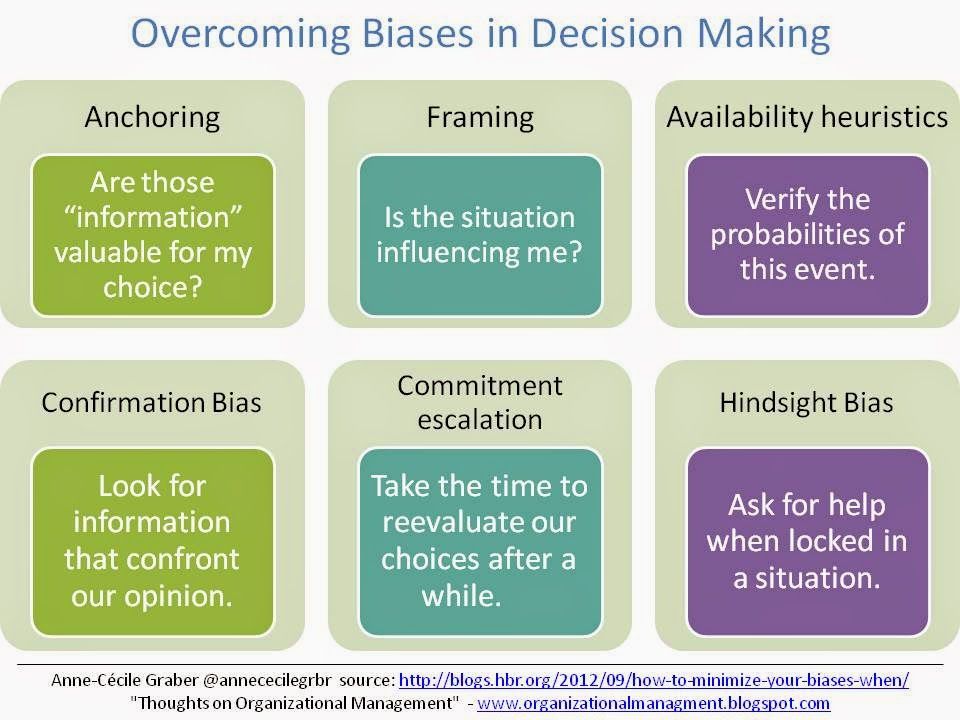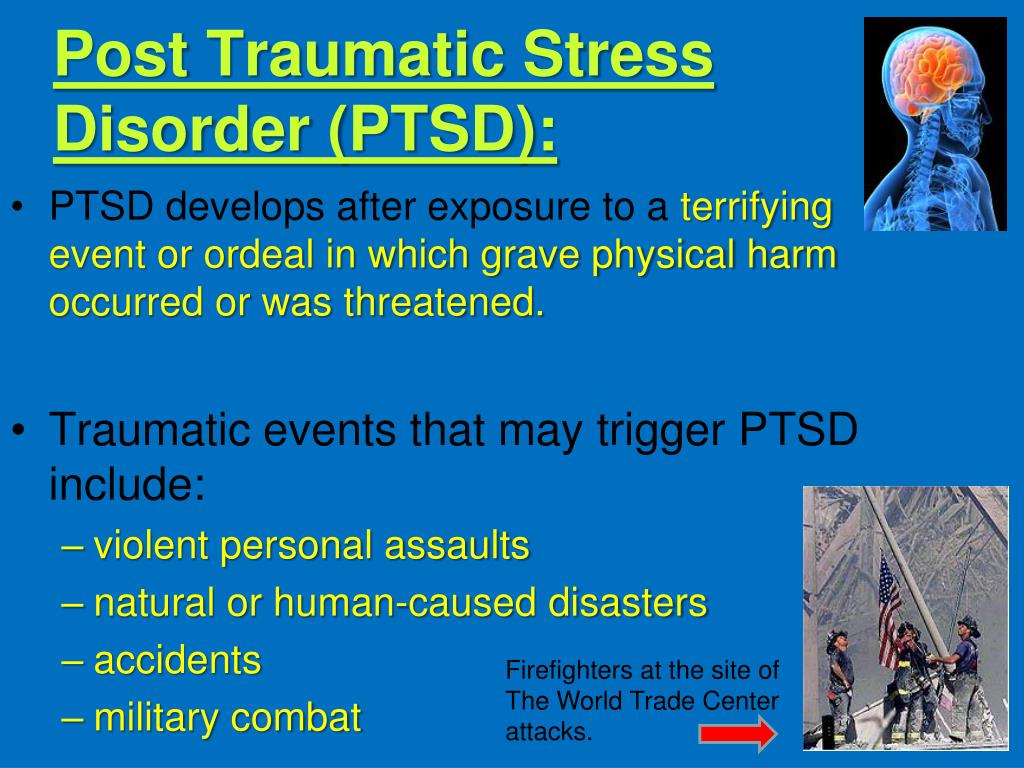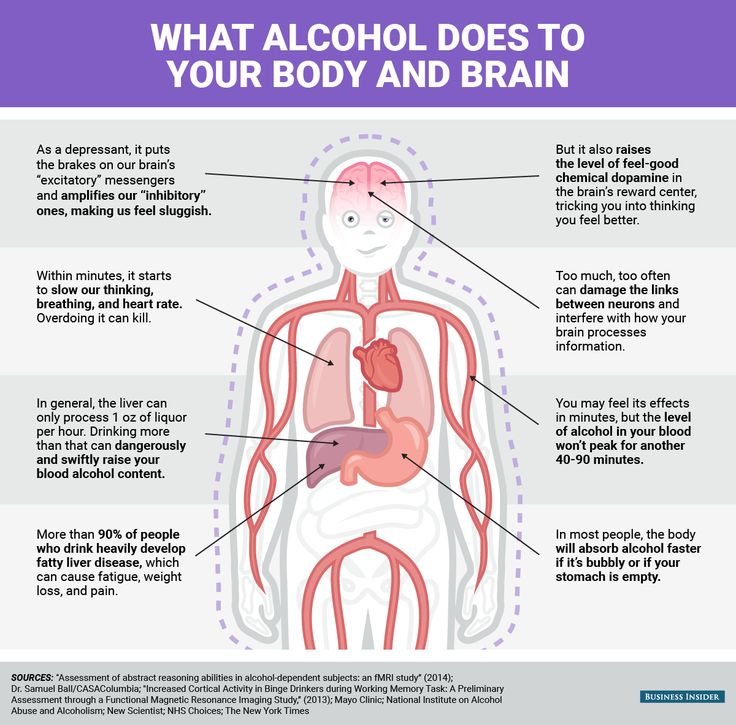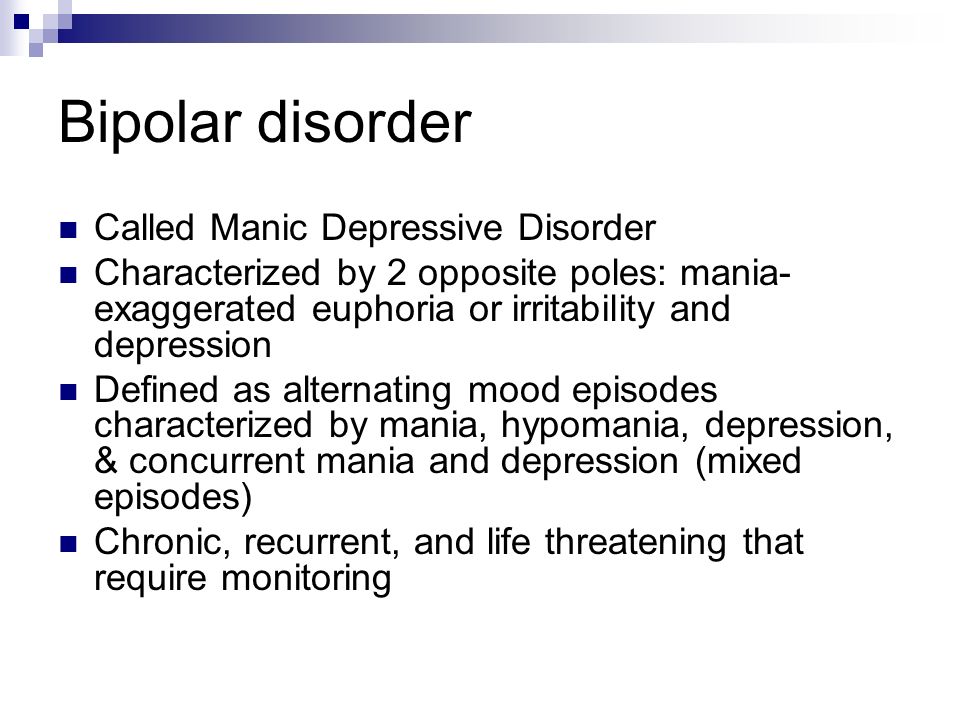Good decision making tips
Decision making 101 | Problem solving
Life is full of choices. Some are easy, such as what to have for dinner (cheeseburger thank you), and others, more serious, like, for instance, choosing a career. Regardless of how important a decision is, good decision skills are useful in life, especially if you feel indecisive about something and it’s getting you down. Get tips on how to make good decisions, and find out what to do when you can’t figure out a plan.
Why good decision making helps
People make decisions all throughout their day, most of which are straightforward and don’t require much thought. However, when situations are more complicated and have longer term impacts, it’s easy to feel unsure or hesitant.
When faced with a tough decision it’s common to feel:
- overwhelmed
- stressed or anxious
- wound up
- pressured
- confused
- distracted
- tired
Because indecision can have a negative impact on how you’re feeling, it’s important to learn strategies for making positive decisions in tough situations. While you may not be able to guarantee the outcome of a decision before you make it, at least you can know you put a lot of careful thought into it.
Tips for making decisions
Step 1. Don’t let stress get the better of you. It’s easy to feel stressed out and anxious when you’re facing a tough choice. You might tend to rush your decisions without thinking them through, or you avoid making a decision at all because the stress has put you off your game. If you’re feeling anxious about a decision, try to manage your stress so that it doesn’t cloud your thinking. Go for a walk on the beach. Hit up a yoga class or hang out with friends.
Step 2. Give yourself some time (if possible). It’s hard to think clearly under pressure, and sometimes your first idea isn’t always your best one. Give yourself the chance to sit on a problem for a while so that you can process your options and feel confident about the course of action you choose.
Step 3.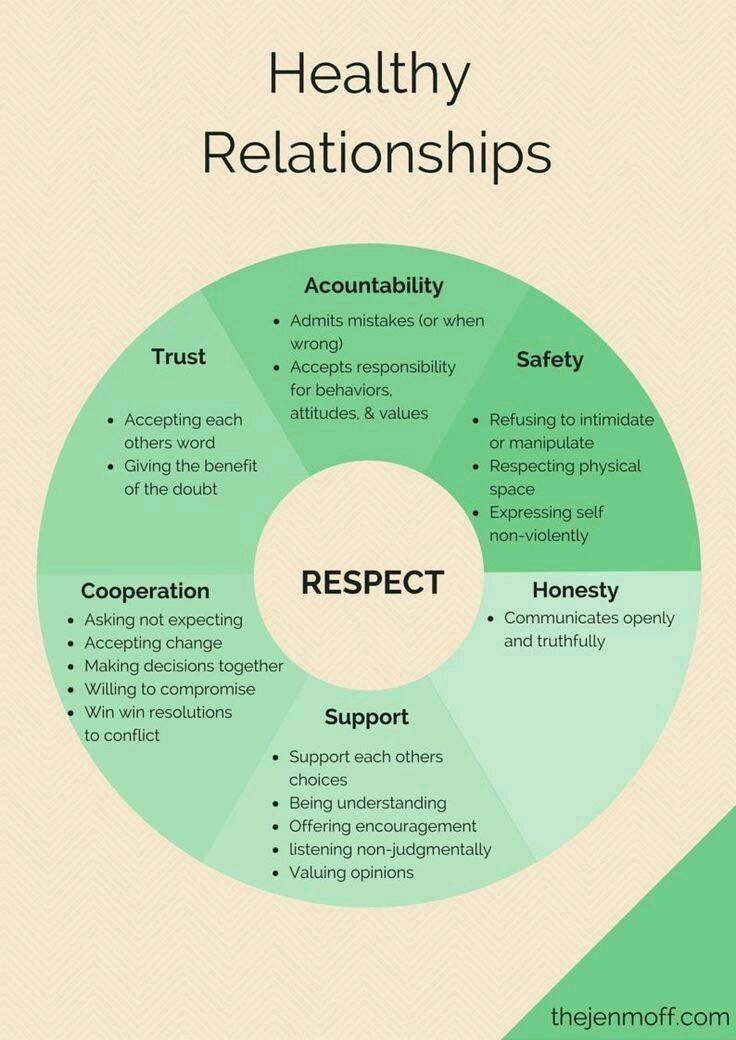 Weigh the pros and cons. When faced with a big decision, sometimes we lose sight of the big picture. Write a list of pros and cons for each course of action and then compare them. Sometimes the cons aren’t nearly as bad as we imagine them to be, or the pros might make your options more obvious.
Weigh the pros and cons. When faced with a big decision, sometimes we lose sight of the big picture. Write a list of pros and cons for each course of action and then compare them. Sometimes the cons aren’t nearly as bad as we imagine them to be, or the pros might make your options more obvious.
Step 4. Think about your goals and values. It’s important to be true to ourselves and what we value in life. When you factor into a decision the things that are important to you, the best option might become obvious. At any rate, you’re more likely to end up with an outcome you’re happy with.
Step 5. Consider all the possibilities. Making a decision can result in several different outcomes and not all of them may be obvious. When considering each option, don’t just list the positives and negatives; write down any likely consequences.
Step 6. Talk it out. It can be helpful to get another person’s perspective on your issue, particularly if they’ve faced a similar decision in their own life.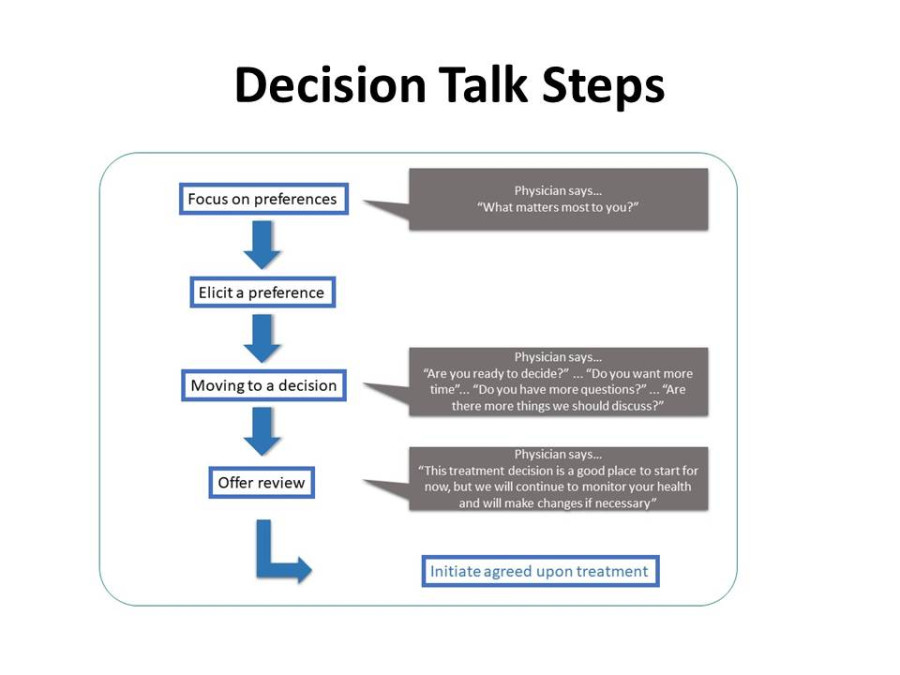
Step 7. Keep a diary. If you feel like you’re on a bit of an emotional rollercoaster, it might help to keep track of your feelings by writing them down.
Step 8. Plan how you’ll tell others. If you think someone may have a bad response to your decision, think through what their reaction is likely to be. Put yourself in their shoes to help you think of a good way to manage the situation.
Step 9. Rethink your options. If you’re up against a lot of pressure over a decision, or there are some new factors to consider, look over your options again. You might decide that your original decision is still the best one, but give yourself the option of changing course. If a decision no longer feels right for you, go through these steps again to figure out a better solution.
If you’re having a tough time
If you’re feeling overwhelmed with negative feelings because you’re facing a tough decision, it’s important to look after yourself.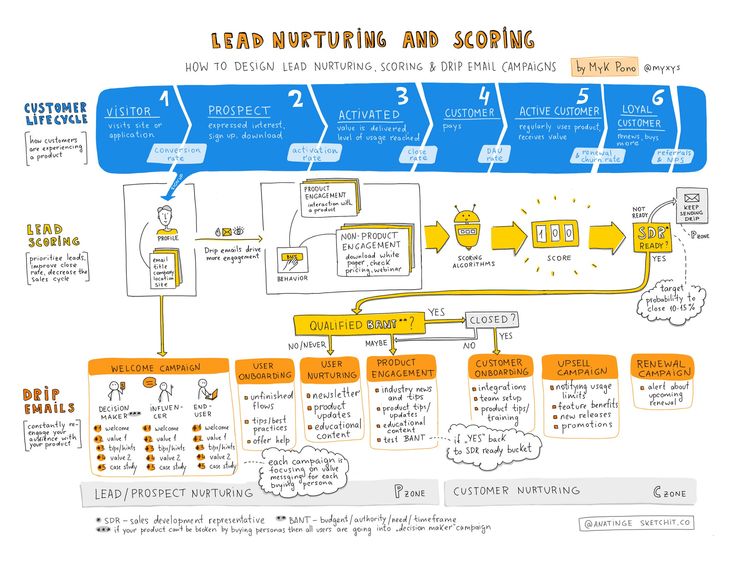 Take some time out to relax or do something you enjoy.
Take some time out to relax or do something you enjoy.
If you’re finding your indecision over a situation is affecting how you get on day to day, it’s a good idea to talk to someone you trust, or visit a counsellor. They’ll be able to help you work through the process of decision making, and guide you through different strategies.
What can I do now?
- Work on your problem solving skills.
- Talk to someone you trust about your situation and see if they have any insights to offer.
- Learn about building good coping skills.
Explore other topics
It's not always easy to find the right place to start. Our 'What's on your mind?' tool can help you explore what's right for you.
What's on your mind?
Learn How to Make Better Decisions with 3 Powerful Habits
Jump to section
Why is it important to make good decisions?
3 habits that will make you a better decision-maker
10 effective decision-making tips
Learn how to make better decisions
You’re faced with new decisions every hour of every day.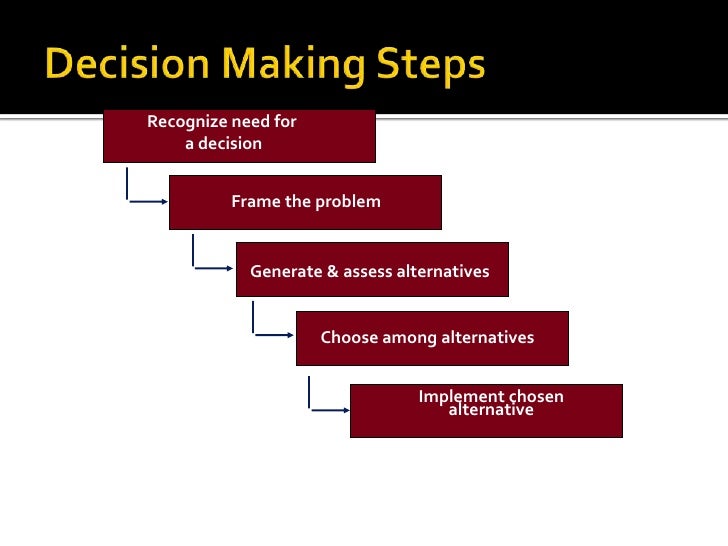
Sometimes, it’s as simple as choosing which shoes to wear to work. (Not always so simple with a commute and multiple events in a day.)
But when important moments that require decisive action come around, it can be difficult to make the right decision without a process to do so.
Let’s explore how to make better decisions and how to cultivate the habits that will help simplify the process.
Why is it important to make good decisions?
Individual decisions might not seem to matter that much in the moment.
Usually, it’s the repercussions of those decisions that have an impact on your life. Making better decisions leads to better results (and fewer repercussions). Better decisions might leave you with more options and flexibility. Conversely, a good decision might shut off other options but open up a new opportunity.
When you make better decisions, it also means you’re learning from your mistakes. And learning from your mistakes is a crucial aspect of personal development.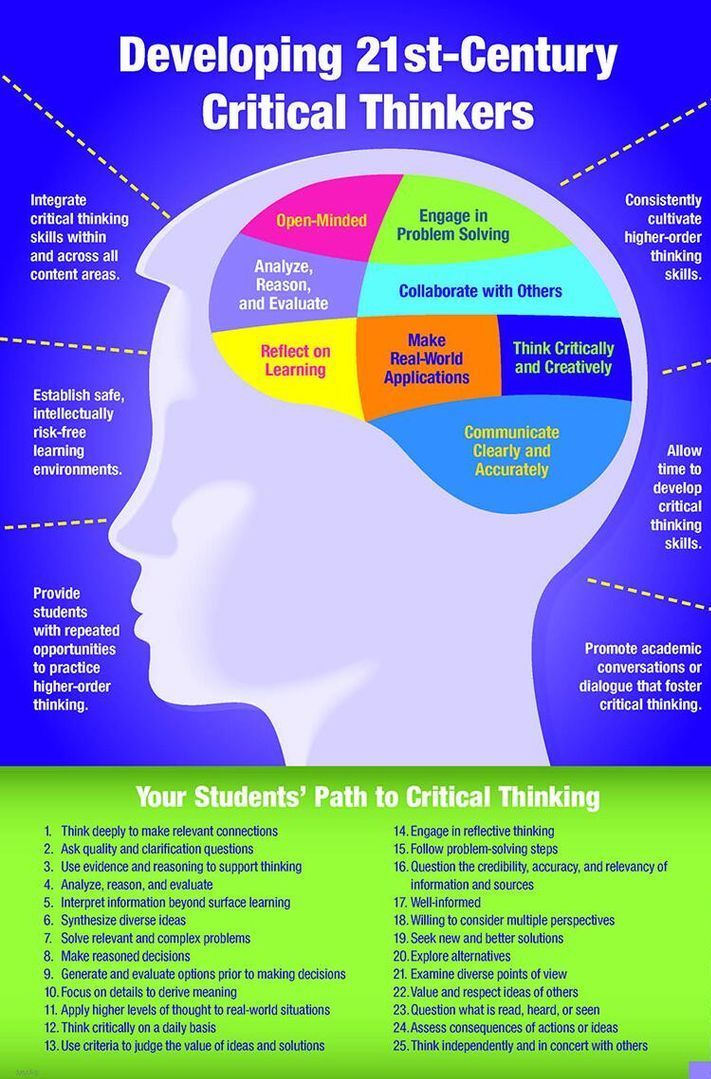
Making good decisions is also important in your work life, and for your work-life balance. It can help you further your career and create better results from your work. Good decision-making can help you achieve greater job and life satisfaction.
Ultimately, making decisions is what will make you a leader in your place of work.
You cannot lead without being decisive. And when you’re a leader, your decisions will affect other people, not just you. Because of this, it’s important to consider all the moving pieces and potential consequences of a decision.
Framing the situation and weighing the alternatives are important steps in making decisions like a multi-billion-dollar corporation.
3 habits that will make you a better decision-maker
Are you wondering how to make big decisions effectively?
Here are three habits that will show you how to make better choices in life and work.
1. Leave yourself some space to reflect on your mistakes (and successes)
You won’t learn from your mistakes if you don’t take the time to reflect on them. That’s why you should make it a habit to carve out a regular time in your schedule for reflection. This can also help improve your mental fitness.
That’s why you should make it a habit to carve out a regular time in your schedule for reflection. This can also help improve your mental fitness.
This isn't just to dwell on your mistakes or beat yourself up about bad decisions. Use it as a time-boxed period to honestly review your day's decisions and consider why some proved to be better (or worse) than others.
Reflect on what caused you to make mistakes: maybe an assumption was way off or you didn't seek any other input. Maybe you didn't give yourself time to think or you reacted out of fear. Analyze the situation and look at other possible alternatives you may have had. What did you learn? What will you do differently tomorrow as a result?
You won’t be able to take back your mistakes. But you can make it a habit to learn from those decisions in order to improve your decision-making skills.
2. Analyze your own self-confidence
It’s important to have confidence, especially when you’re showing up for a new role at work.
But overconfidence can negatively impact your decision-making process. In medicine, studies show that overconfidence can lead to diagnostic errors.
To keep your overconfidence in check, make it a habit to analyze yourself regularly. Are you 100% confident that you know exactly what you are doing? If you are, you might be suffering from overconfidence.
We can be 100% committed to our decision while still acknowledging how much we don't know or control. Stay humble to the unknown. That will ensure that you still consider other possibilities and seek out other perspectives?
If you notice that you are becoming overconfident, start seeking out other people’s feedback to get a new perspective.
You won’t be right all the time, even if you believe you can be.
On the other hand, if you notice you are not confident, challenge that self-doubt. Consider finding ways to build more realistic confidence. This is especially important if you experience imposter syndrome.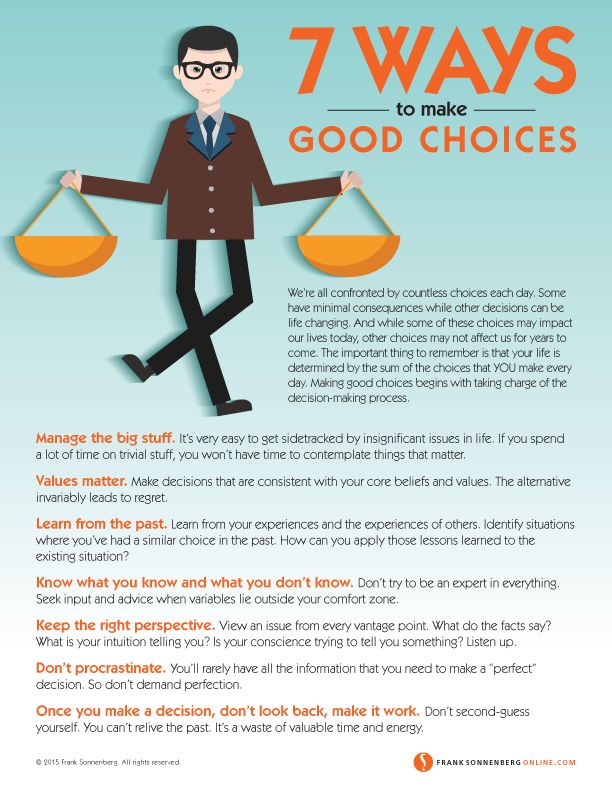
3. Become aware of your mental heuristics
Heuristics are mental shortcuts that people use to make quick decisions.
Heuristics can be helpful by:
- Reducing the mental effort you need to make decisions
- Helping you with problem-solving
- Simplifying complex questions
- Helping you arrive at a conclusion faster
However, heuristics can also lead to cognitive biases. One example is the availability heuristic. You’ll be more likely to make a decision based on information that pops into your mind quickly.
So, if you’ve recently read several news articles about toxic managers, you’ll be more likely to find toxic behavior in the leaders around you.
Because of this, it’s important to understand what heuristics you use. Those heuristics could impact your daily decision-making process.
When you know what they are, you can pause and analyze the effect they are having on your decision-making. This takes some effort because our heuristics feel comfortable and natural to us.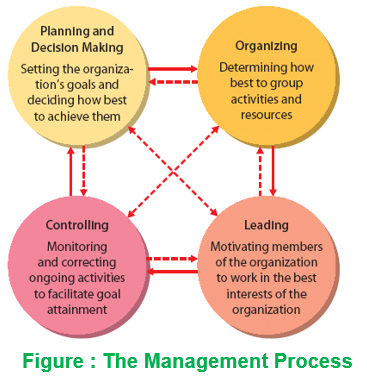 They feel right.
They feel right.
Take a step back and examine what other possibilities existed that you didn't choose or even consider. How might the outcome have been different? This will help you calibrate whether your heuristics are helping you make better decisions or not when the time comes.
Make it a habit to recognize when you jump to conclusions and question why you jump to certain conclusions or make certain decisions.
10 effective decision-making tips
Developing the right habits is important in order to make good calls. But what can you do when you’re finally confronted with a tough decision?
Here are 10 decision-making tips to nudge you in the right direction and help you learn how to make good decisions faster:
1. Imagine yourself one year into the future
When you’re faced with a decision that you’re unsure about at the moment, try to imagine what the future will look like. Make a plan for one year in the future, and even five years into the future.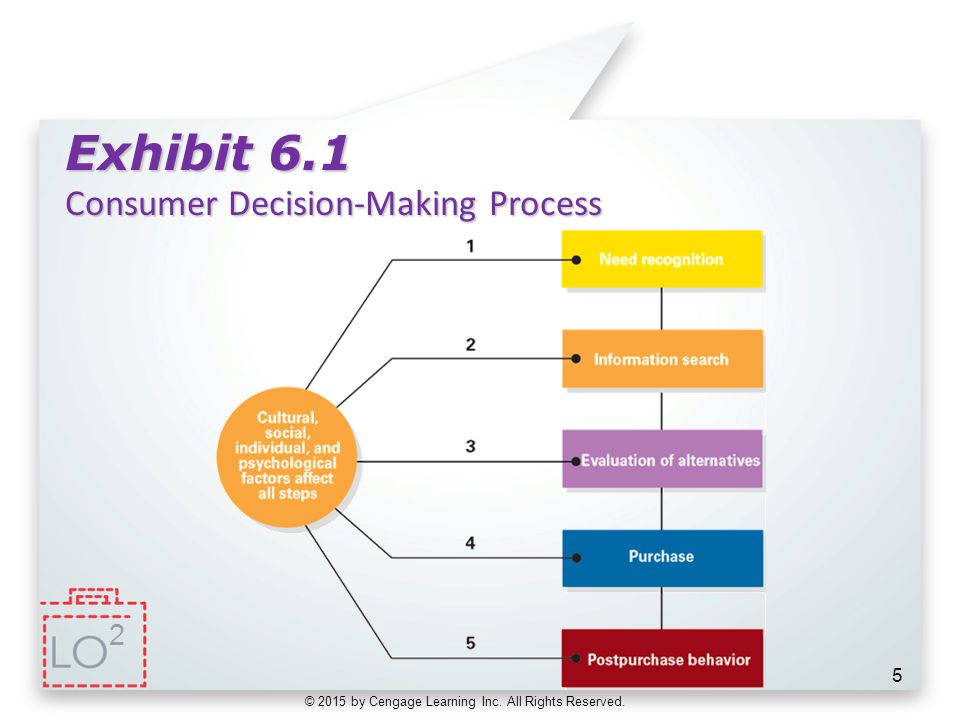 It’s important not to get caught up only in the immediate results of your decisions.
It’s important not to get caught up only in the immediate results of your decisions.
The immediate results won’t necessarily let you know whether you’ve made a poor decision or not.
Think about one decision and how this will impact your future. Consider all aspects that you can think about. Then, compare with other decisions.
Where do you want to be in one year? Or in five years? And how do these different decisions impact what you want?
While this one-year jump isn’t the only factor you should consider when making a decision, it’ll help you brainstorm how the current situation can help you get what you want.
For example, let’s say you need to choose between a new job offer and keeping your current job.
Look at where your current job could take you. Compare that to what the new offer could do for you a year for now. Which one is closer to what you want?
2. Write down your goals
The previous one-year exercise can be helpful when making important decisions.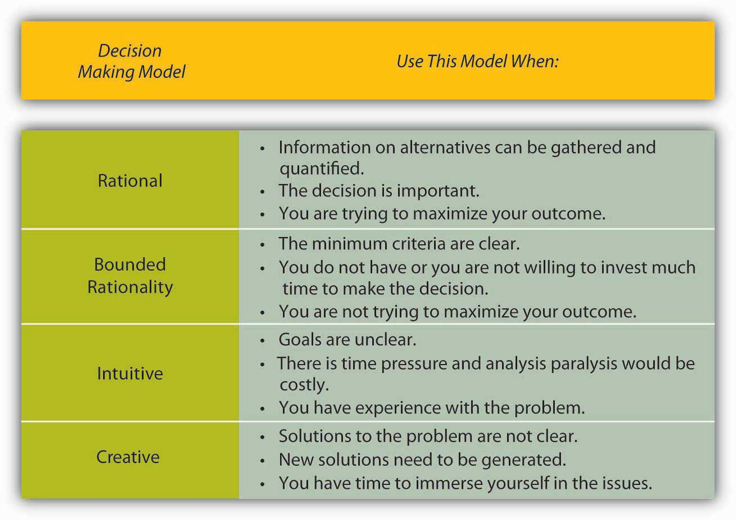 But that’s only the case if you know where you want to be one year from now.
But that’s only the case if you know where you want to be one year from now.
If you don’t, how will you know which decision will take you closer to your goals and which is a bad decision?
That’s why you should take some time to sit down and write your goals and create a personal vision statement that aligns with your goals. These goals should be both personal and professional.
Let’s continue the previous example about a new job offer. If you know that your goal is to become a leader at work, writing it down can help you figure out which path will get you closer to that a year from now.
If the new job offer will give you a better salary but fewer opportunities to improve your leadership skills, then you know that you’re better off staying in your current position.
3. Identify at least four alternatives
Unless you need to choose between two decisions, take some time to identify at least four alternative choices you could make.
Even when you believe there are only two decisions, try to think outside the box and see if other alternatives exist.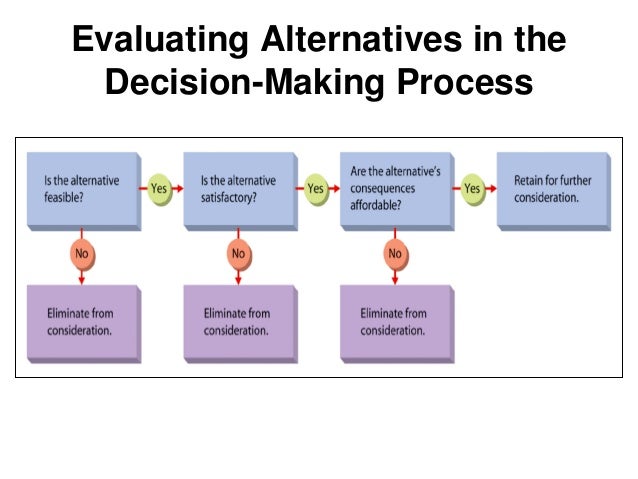 The more alternative decisions you know about, the more you can make an educated decision.
The more alternative decisions you know about, the more you can make an educated decision.
On the other hand, if you only consider two options, you may miss out on another decision that would have gotten you close to your goal.
Let’s say you’re mediating a dispute between two people at work and need to choose one side of the story to believe. But there are likely other alternative points of view for this story.
You can seek out other people who witnessed the argument before you arrived. As a result, you can establish a story that isn’t based on just one person’s word or the other. You can come to a decision that involves compromise.
4. Figure out what you don’t know
Whenever you make a decision, there will likely be unknown factors to consider. But you don’t know what you don’t know.
That’s why it’s important to take a moment and seek out what those unknown factors are. Once you figure out what you don’t know, you can take the necessary steps to know more.
The more you know, the more you can make a good decision based on all the facts.
Let’s say you’re still considering your two job options from before. You realize that you don’t know what leadership opportunities are available at the new job. Without this information, you won’t know what decision can lead you closer to your goals.
You decide to reach out to a friend who works there to ask them about the leadership opportunities.
5. Step away from the situation
When you’re deep in a situation, it may be difficult to see all the facts clearly.
Step away from the situation you’re trying to make a decision about. Use the distance to do all the steps from before, like coming up with alternative solutions or imagining yourself one year from now.
For instance, let’s say you need to build a team for a difficult project at work. You’re stuck in your office trying to figure out who the best people are for the job.
Simply step away for a moment and change your perspective.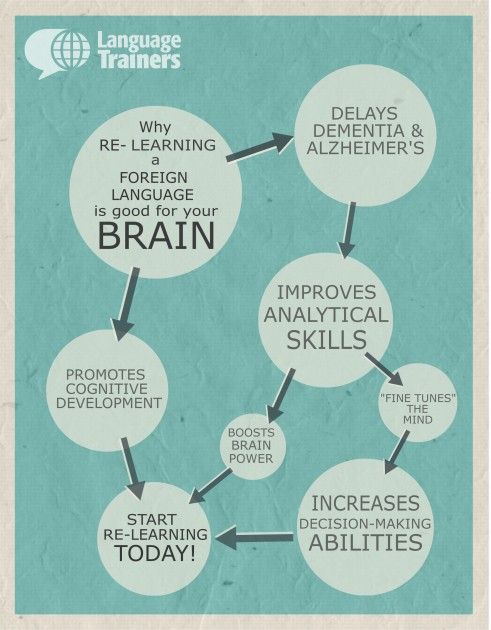 A change of scenery can provide you with the clarity you need to make better decisions.
A change of scenery can provide you with the clarity you need to make better decisions.
6. Face your mistakes
It’s not easy to face your mistakes. But doing so can inform your future decisions.
When it’s time to make a decision, think back on previous similar situations when you may have made a mistake. Figure out what things you did or didn’t do that contributed to your mistake.
In the previous example, perhaps you assembled a team in the past that didn’t perform well. By facing your mistakes, you realized that you let your friendship with a team member influence your decisions.
Now you’re aware of your biases. You can make new decisions with those biases in mind.
7. Seek out feedback
Getting someone else’s feedback can expand your perspective. It can reduce your own biases and uncover possibilities you didn’t consider.
In the team-building example, have someone you trust weigh in on your potential team ideas. Someone else could spot a flaw in the team that you wouldn’t have noticed otherwise.
8. Look at the long-term and short-term consequences
While looking one year into the future is a great exercise, it’s also important to consider the short-term and long-term consequences of a decision. How will this decision impact your life a week from now?
What about a month from now? What about three years, or even 10 years?
For example, if you’re considering moving across the country, you know this will have a long-term impact on your life. It'll also affect your life in the short term.
Write down possible scenarios in the short term and long term for whether you stay or go.
9. Analyze data
Sometimes, only trusting your gut instinct can get you in trouble.
Try to find objective data points to round out your knowledge of the situation. For example, if you’re considering a cross-country move, you can look at data points like employment rates, crime rates, and the cost of living.
These data points can help you paint a clearer picture of what your future will look like if you move.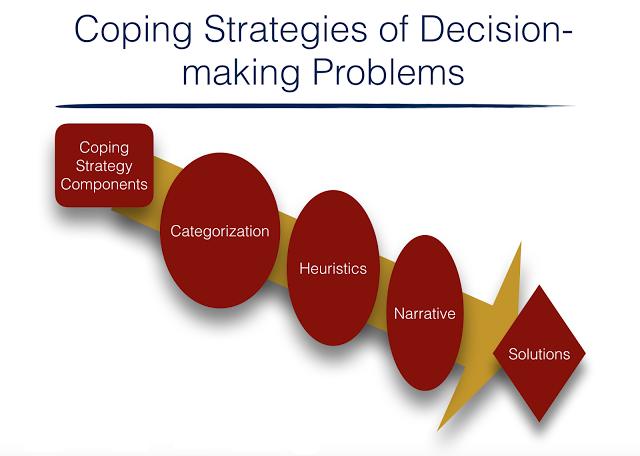
10. Identify your values and stay true to them
This is critical. Your values are the North Star and guardrails, especially when making decisions in a fast-changing or uncertain world. Some people find a personal vision statement helpful for maintaining alignment between values and action. Goals are important, but personal values and work values matter, too.
People who find value and meaning in their work occupy more senior and skilled positions.
Let’s go back to the decision about choosing between your old job and a new offer. If you value inclusive leadership, but your current workplace doesn’t operate that way, perhaps it’s best to take the new offer in a more inclusive company.
Learn how to make better decisions
In addition to these tips, you can also improve your decision-making skills with the help of coaching. You can overcome decision fatigue, make better decisions faster, and feel confident in your choices.
BetterUp’s expert coaching can help you identify your strengths, achieve your goals, and learn better decision-making so you can reach your full potential.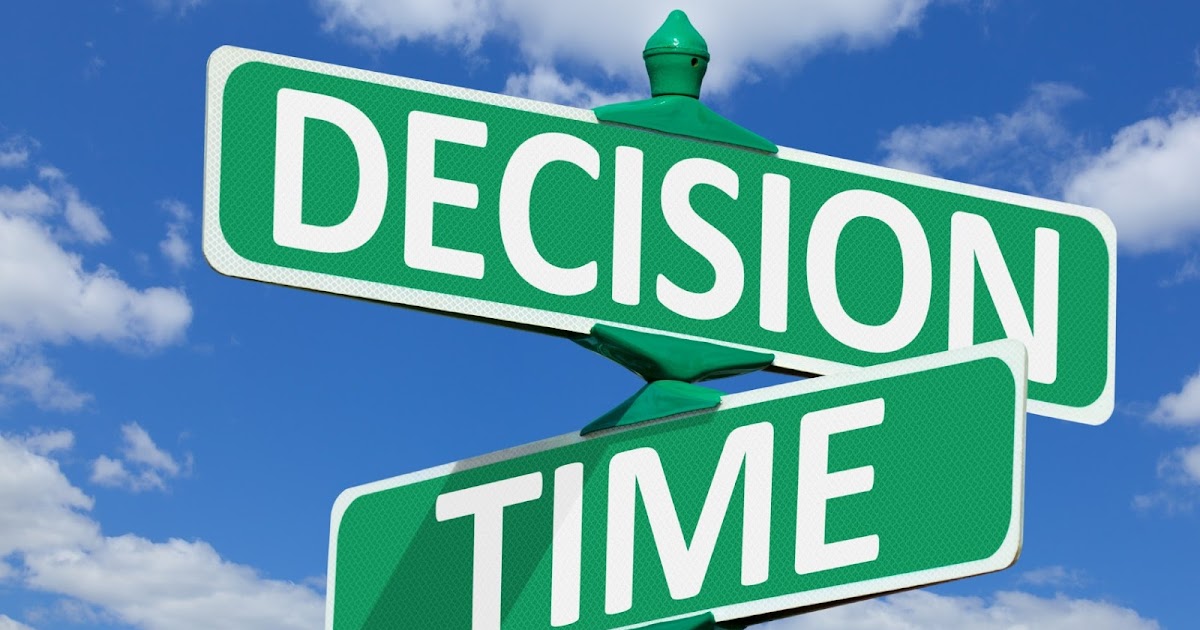
Request a demo to get started today.
10 tips for making the right decisions
On average, we have to make about 70 different decisions a day. From what to wear to agreeing to a new job? We suggest taking advantage of the useful advice of successful people and avoid fatigue when making decisions.
Author: Travis Bradberry
Our days are hopelessly filled with an inexhaustible stream of decisions. A Columbia University study showed that we have to make up to 70 decisions a day. Some decisions are secondary, such as which route to take to work or in what order to complete certain tasks. Others are more difficult, like choosing between two job offers, moving to another city with a loved one, or cutting a toxic person out of your life.
With so many decisions to make every day, the ability to prioritize and make decisions effectively affects not only your success, but directly your happiness.
The author of this article is familiar with many of the strategies that successful people use to make effective decisions, but I have selected 10 of the best strategies for you.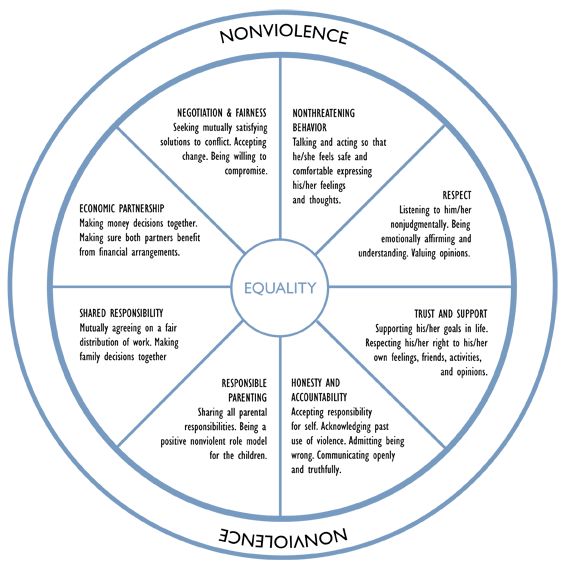
1.
Make small decisions routineDecision making works like a muscle: if you use it throughout the day, it stops working effectively. One of the best strategies that successful people use to avoid decision fatigue is to remove small decisions and turn them into routine. This frees up mental resources for more complex tasks.
Steve Jobs was known to wear a black sweater to work every day. Mark Zuckerberg wears a hoodie. Both explained that these iconic looks are simply the result of a daily routine designed to reduce decision fatigue. They both understood that there were limits to the ability to make the right decisions during the day, as did Barack Obama, who said: “You notice I only wear gray or blue suits. I am trying to reduce the number of solutions. I don't want to make decisions about what I eat or wear because I have to make too many other decisions."
2.
Make big decisions in the morning Another great way to deal with decision fatigue is to leave small decisions for after work (when decision fatigue is greatest) and make big decisions in the morning when your mind is fresh. When you're faced with a flood of important decisions, the trick is to wake up early and work on your toughest tasks before you're faced with a bunch of distracting minor decisions (phone rings, email arrives).
When you're faced with a flood of important decisions, the trick is to wake up early and work on your toughest tasks before you're faced with a bunch of distracting minor decisions (phone rings, email arrives).
A similar strategy is to solve small problems the night before in order to gain an advantage the next day. For example, prepare something in which you will go to work in the evening so that you don’t have to think about it when you wake up.
3.
Pay attention to your emotions There's an old saying, "Don't make permanent decisions based on temporary emotions." And it rings true. Successful people recognize and understand their emotions (including their intensity and impact on behavior) so that they can look at decisions as objectively and rationally as possible. Unfortunately, most people do not know how to manage or even recognize their emotions. The company, TalentSmart, has tested over a million people and found that only 36% of us are able to accurately identify our emotions when they occur.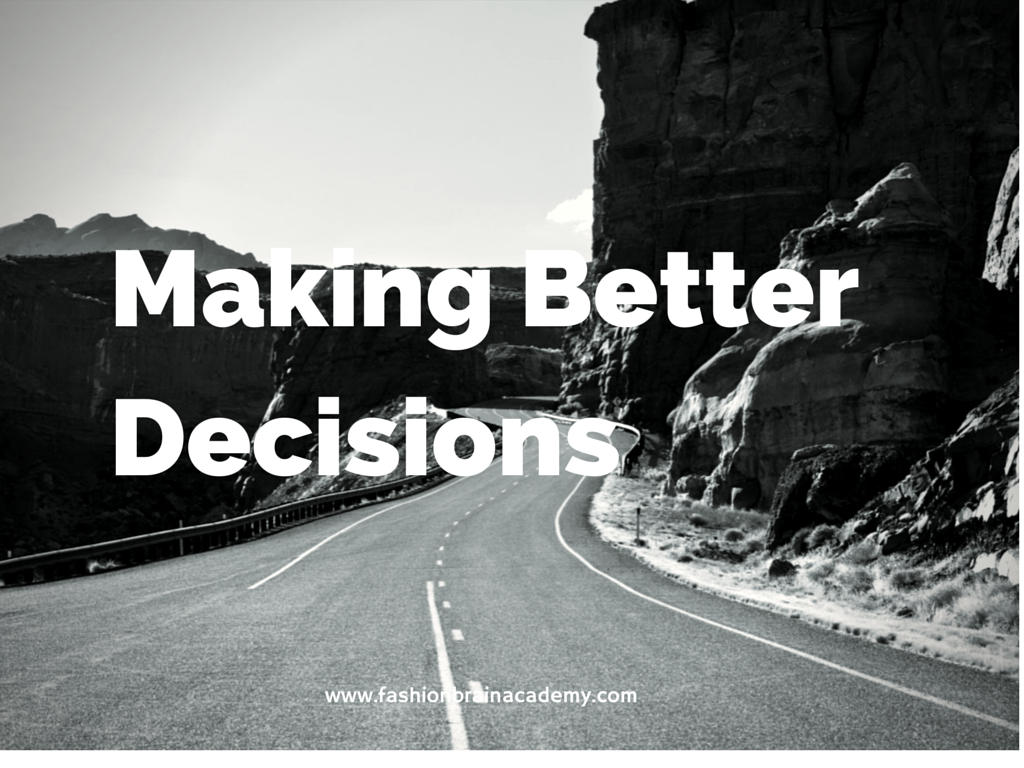 Those who are good decision makers know that a bad mood can make them lose their temper or deviate from their moral compass just as easily as a good mood can make them overconfident and impulsive.
Those who are good decision makers know that a bad mood can make them lose their temper or deviate from their moral compass just as easily as a good mood can make them overconfident and impulsive.
4.
Objectively evaluate all of your optionsWhen immersed in decision making, successful people check all of their options against a predetermined set of criteria because they know this makes the decision process easier and more efficient. Here are some useful criteria:
How will this solution benefit me? What is the harm?
What benefit will this decision bring to someone else? What harm?
Will I regret making this decision?
Will I regret not making this decision?
Does this decision reflect my values?
5.
Mornings are wiser than evenings The "sleep on the decision" strategy ensures that you have a clear head when you make that decision the next day. Sleep also gives you time to sort out your emotions. When you act too quickly, you tend to react spontaneously, but when you pay more attention and take more time to make a decision, important aspects are revealed to you that you might not have paid attention to before.
Sleep also gives you time to sort out your emotions. When you act too quickly, you tend to react spontaneously, but when you pay more attention and take more time to make a decision, important aspects are revealed to you that you might not have paid attention to before.
6.
… But don't procrastinateSuccessful people know the importance of gathering as much information as possible, but at the same time they try not to fall prey to analysis paralysis. Instead of waiting for the moons to align, successful people know they need to make a timetable for making a decision and stick to it. When a decision date is set, there is motivation to meet the deadline.
7.
Use physical exercise to recharge The stress of having to make a big decision naturally releases cortisol, the chemical that triggers the fight-or-flight response. Cortisol dulls your ability to think clearly and rationally. When you start to worry about making a decision, try exercising. It takes only 30 minutes to get a good boost of endorphins and return to mental clarity. Exercise also helps you overcome the fight-or-flight state and use cortisol to your advantage.
It takes only 30 minutes to get a good boost of endorphins and return to mental clarity. Exercise also helps you overcome the fight-or-flight state and use cortisol to your advantage.
Research shows that prolonged exercise improves the overall functioning of the decision-making areas of the brain.
8.
Always refer to your moral compassSuccessful people know the importance of sticking to their moral principles when making an important decision. Moral principles serve as a reliable guide when your emotions are pulling you in a different direction.
9.
Seek external advice When approaching a decision, we tend to first choose an option and then gather information to support that decision—this is called confirmation bias —rather than gather information and then choose option. A great way to overcome this tendency is to get the opinions and advice of other people with different views on the situation. Their point of view will help you weigh your options more objectively and identify your subjective or irrational tendencies.
Their point of view will help you weigh your options more objectively and identify your subjective or irrational tendencies.
10.
Remember previous decisionsMark Twain described the complex nature of decision making as follows: "Good decisions are based on experience, but experience comes with making bad decisions." This does not mean that the only way to learn to make excellent decisions is to make a lot of mistakes. It simply means that it is important not to forget past decisions. Successful people remember their past decisions well enough to use them to their advantage when something similar comes up.
Wrapping Up
Given that the consequences of decisions can drag on for days, weeks, or even years, making the right decisions is an effort that deserves every 'bit' of your time and energy.
Source: weforum.org
Tags: business rulesrules of businessrules of successdecision makingadviceTravis Bradbury
The Best Decision Making Guide make the wrong decision, and the worst thing is not make any decision.
 ”
” And yet, when it comes to making decisions, we are afraid of taking the wrong step. As a result, we sit idle in the hope that the right decision will come naturally over time. You already know that this is not the best way, especially when it comes to the distribution of work tasks and team management. Instead, it makes sense to identify what skills and tips will help you make faster decisions that previously baffled you.
“Leaders aren't afraid to make decisions,” says behavioral and marketing psychologist Dr. Elliot Jaffa. "It's only for the followers."
Indeed, the ability to make decisions is one of the pillars of effective leadership. But, no offense to Teddy Roosevelt, this is easier said than done. Let's see what strategies will help you develop decision-making skills.
Obstacles to making the best decisions
We have all had good and bad decisions in our lives. Why is this happening? Many factors influence the consequences of our decisions.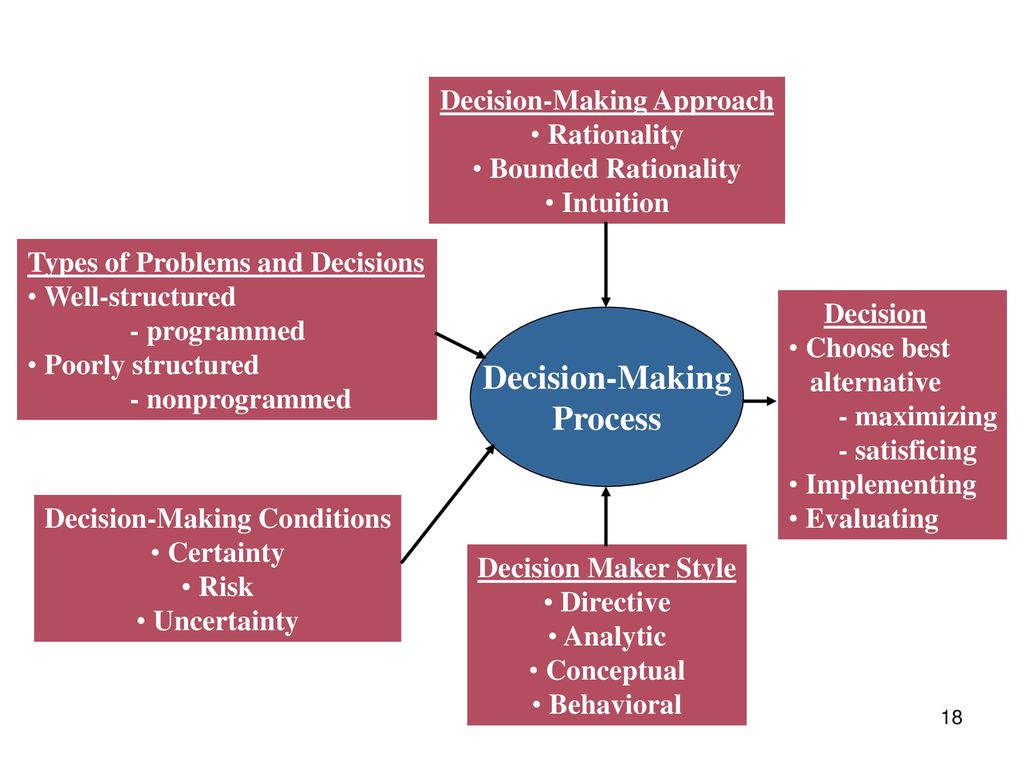
“One of the obstacles is the false belief that we don't have time to think,” explains Mike Kallet, CEO of HeadScratchers and author of Book "Think Smarter" . “It’s stupid because if you don’t think things through well, you will make mistakes and end up wasting more time, not to mention wasted money and missed opportunities.”
As a result, when it comes to decision making, we often prioritize speed over efficiency. “We get paid to do business,” Kallet continues. “And we ourselves like it when the work goes well. And when we take a break to think about a problem, we often feel like we're wasting time."
Another obstacle to decision making is obsession. “Decision fixation comes from the way our short-term memory works,” says Yolanda Berry, MSc in Behavioral Economics and Principal Consultant at UK Behavioral Economics.
Berry gives a simple example. If you ask someone for the last two digits of their social security number, and then ask them to guess the number of African countries that make up the UN, the number given will be higher if the number was closer to 99 than to one.
“Although there is no direct connection between the two answers, the fact remains that the number left in our short-term memory affects our ability to make correct guesses,” she says.
Decision fatigue is another phenomenon that can seriously affect the search for reasonable decisions. “There is strong evidence that the number of decisions affects their quality,” Berry continues.
Studies have shown that physicians are more likely to prescribe antibiotics at the end of a shift than at the beginning. And judges are more likely to turn down parole requests in the evening than in the morning. This clearly proves that decision fatigue is real. This significantly reduces our chances of making the right choice.
How to make good decisions
Now that we have identified the barriers to making good decisions, it's time to determine which strategies increase our chances of overcoming them. Here are six tips to improve your own decision-making skills.
1.
 Get to the heart of the problem
Get to the heart of the problem If you don't know where to start, Kallet's advice is to first determine what the problem is—what exactly we have to deal with. By clarifying the essence of the problem, you can better prioritize.
“Most of the mistakes in decision making come from not fully understanding the problem and not starting from it, but from the solution found,” Cullet explains.
“What is the purpose of our meeting - is it to make a decision by the time it ends, that is, in an hour, or is it to explore all possible options? asks Teresa Huston, Ph.D. and author of How Women Decide , , in the Harvard Business Review Ideacast. “These are very different goals.”
By understanding the problem and prioritizing accordingly, you will have a basis for making a more informed decision.
2. Get rid of the need to make secondary decisions
Stop for a moment and remember the most famous entrepreneurs in the world. Now imagine their most famous clothing.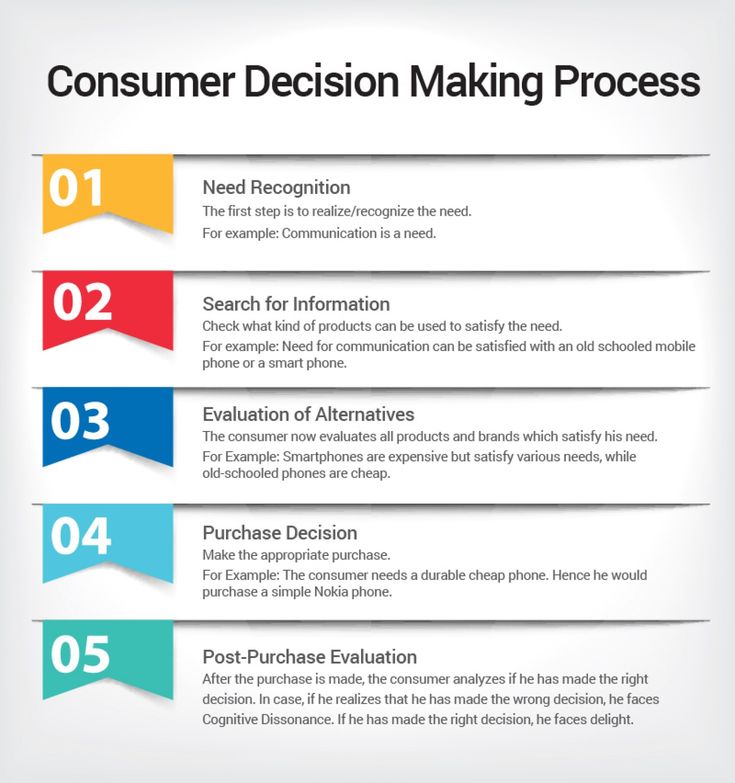 Strange request, right? But I bet you're now imagining Steve Jobs' famous black turtleneck or Mark Zuckerberg's unchanging gray T-shirt.
Strange request, right? But I bet you're now imagining Steve Jobs' famous black turtleneck or Mark Zuckerberg's unchanging gray T-shirt.
We have already discussed the impact that decision fatigue has on the quality of our decisions. By delegating responsibilities, automating work, or even forgoing decisions that you don't have to deal with personally, you can save mental resources for more important things.
"Advance planning and decision making will take some of that fatigue away," says Berry.
Preparing a dinner menu for the whole week in advance, shifting the decision of issues that no longer concern you to the shoulders of another employee - this clearing of mental space can help you a lot.
3. Multiple Choices
“Most people stick to Plan A and never think about Plan B, C, or D,” says Dr. Jaffa. When trying to make a decision, it is important to find options that are truly different from each other.
Houston explains that we easily fall into the trap of being limited to one choice, but convincing ourselves that there are actually two: “We often think: should I do this or not? Hire Samantha or not? Should I take a break and walk for half an hour or not? In each of these cases, we have only one choice - I either change something, or stay the same.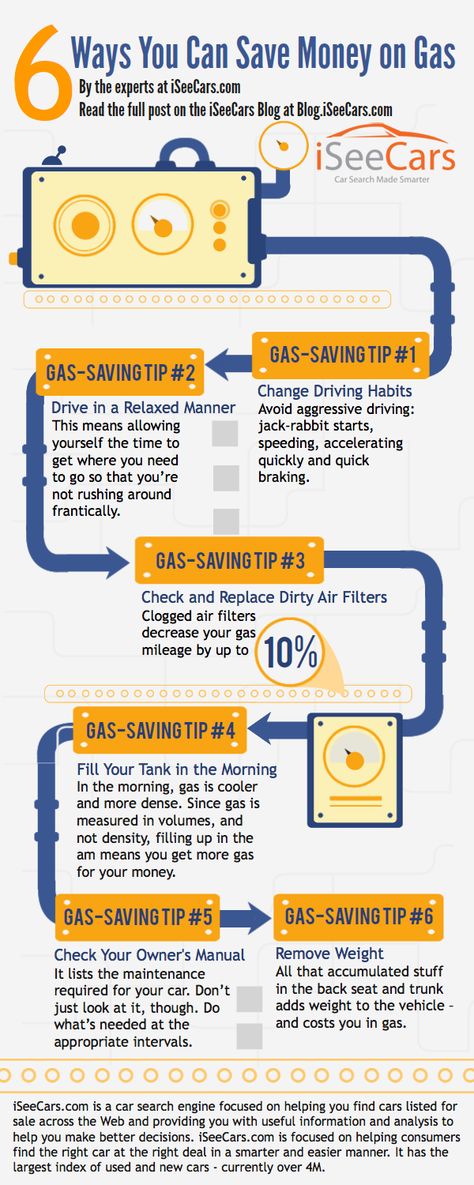
Generally, Houston says, it's best to pick three good alternatives. She gives the example of a company deciding whether to build a garage.
“Instead of having a garage or not, here are three options: build a garage, give all employees bus passes, or let them work one day from home,” she continues. “These are all solutions to the same problem, but they are very different from each other.”
If you find several possible choices, the quality of the final decision will naturally improve. In doing so, you really choose the best opportunity, and do not limit yourself to yes or no frames.
4. Develop a structured approach
It's strange to try to structure your decision making. But believe me: it can be a good help for you.
“A great way to minimize the impact of fixation and other cognitive biases is to carefully structure your decision-making process,” advises Berry. “Training the brain to follow the same routine can help reduce the impact of extraneous memories.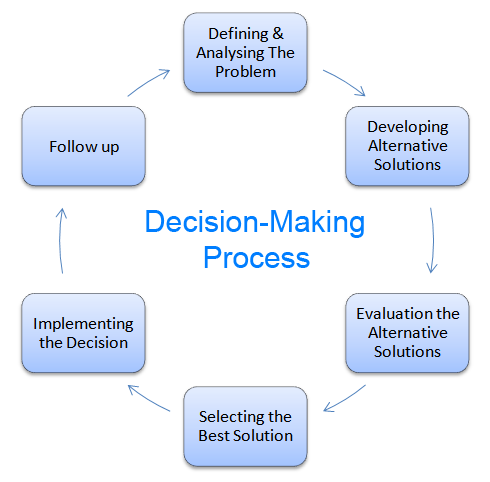 ”
”
This may seem too complicated, but this is a misleading impression. Your procedure can be quite simple - for example, come up with a sequence of questions that you will ask yourself every time you have to make another decision.
“That's why the most effective project managers always see the risks and dependencies clearly when they plan a project,” Berry continues. “Flow charts, action plans in difficult situations and decision matrices not only help to get rid of cognitive distortions, but also help to make decisions in advance based on a whole block of possible scenarios.”
Sit down and think about how you might structure your decision-making process. Whether it's a sequence of steps to take or items to consider, a chart like this will help you make choices with all the information you need.
5. Postpone the moment of making a decision
You have probably heard that before making an important decision, you need to “sleep” with it. If you've previously rolled your eyes and thought it was banal, we advise you not to brush it off so quickly.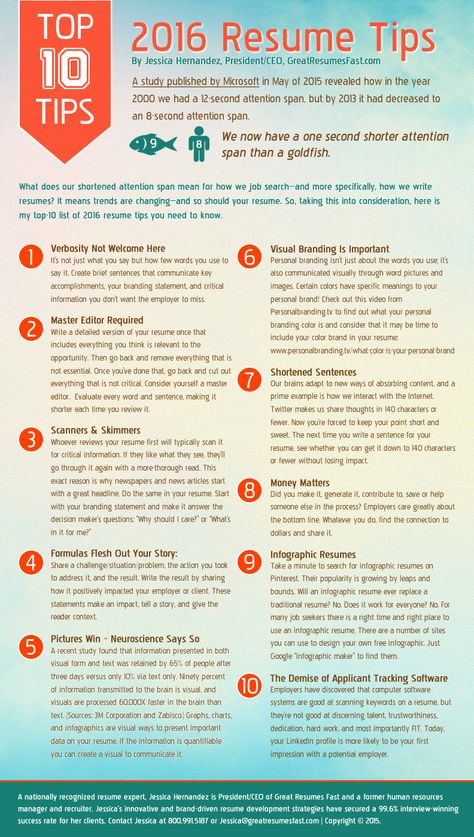 As it turns out, postponing the important decision a little, you really can make the most successful choice.
As it turns out, postponing the important decision a little, you really can make the most successful choice.
“Whether you actually sleep or not, the bottom line is that it's always good to push back the moment of choice a little,” says Houston. “It may not be possible to delay it for a week, but even one hour can significantly affect the result.”
Consider, for example, a study conducted at the School of Business and Economics at Maastricht University: using the Ultimatum game and 168 participants, scientists concluded that by delaying a decision a little, we usually achieve the best results.
6. Look outside
When you're trying to solve a problem, it's easy not to see the forest for the trees. That is why scientists advise looking at the situation by asking yourself one question: What advice would you give to a friend in the same situation? An outsider's perspective can give a more objective picture and help to take into account all the available information and different points of view on the problem.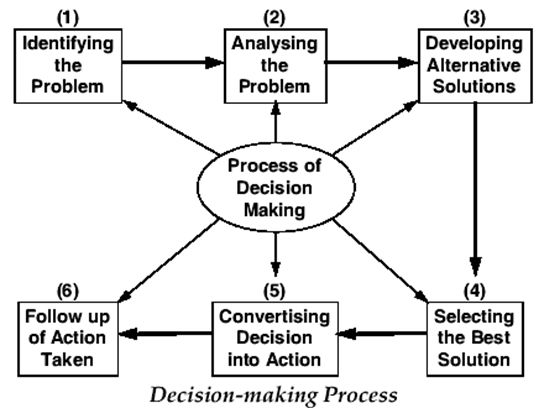
This is supported by research from the University of Waterloo and the University of Michigan. The researchers conducted a survey among 100 people and asked a question about relationships. Some were asked to imagine that their partner or spouse was cheating on them, others that their friend was the victim of infidelity. Participants then filled out a questionnaire that assessed their rational thinking skills.
“As the researchers expected, respondents who tried to help a friend showed a more rational approach than those who thought about themselves,” explains Melissa Dahl in an article in New York Magazine.
If you feel like you can't make up your mind about anything, try the same tactic and look at the situation from the outside. Ultimately, this will help to find a more reasonable solution.
It's time to make the right decisions
The ability to make the right decisions is one of the most important components of effective leadership.